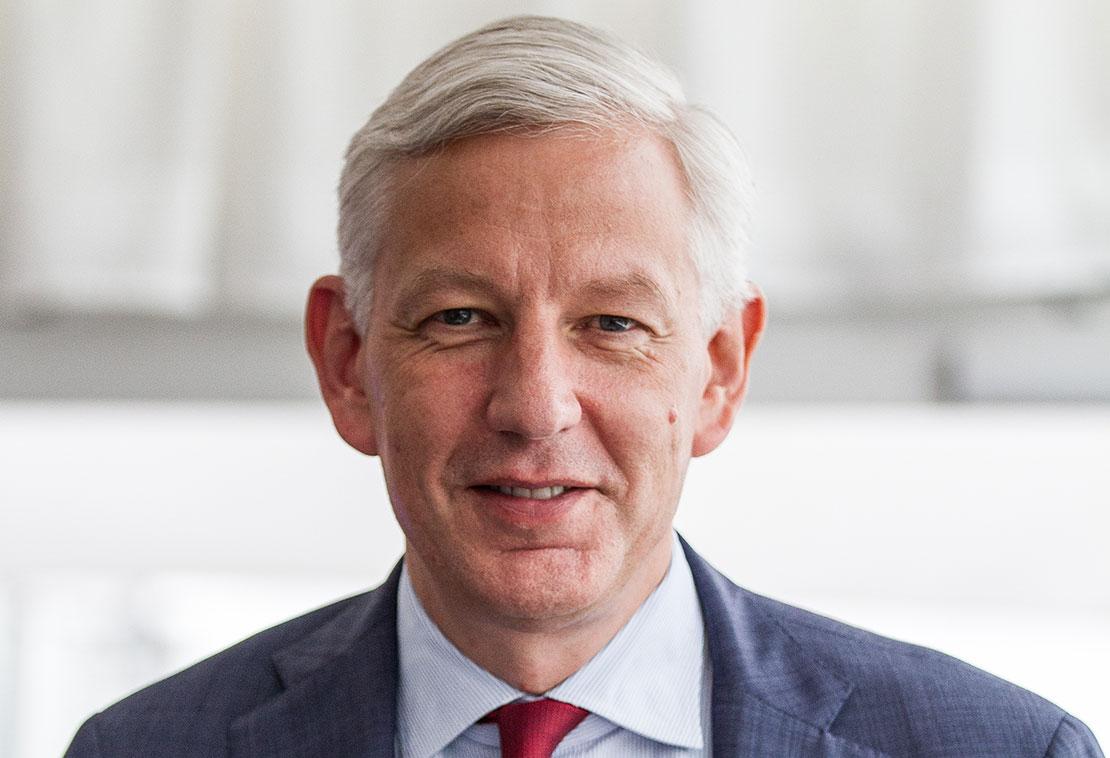10 Break-Out Sessions
[timetable id="9" column_title="0" filter_visible="1" filter_multiple="1" event_box_time="0"]
[timetable id="9" column_title="0" filter_visible="1" filter_multiple="1" event_box_time="0"]


Dominic Barton’s black overnight bag has travelled hundreds of thousands of miles. Inside a zippered pocket are odds and ends: Letters from his mother, family pictures, and other small presents. He finds it funny when, once in a while, the airportworkers screening his luggage look at him with a strange face. And, when he has the chance of staying in the same hotel for a few nights, he takes those items out and places them on a shelf or bedside table. The objects Barton carries around are his way of feeling at home while away.
And Barton travels a lot: As global managing partner of McKinsey & Company, he was on the road 300 nights in 2017. Running a firm and being constantly on the move is a lifestyle that many young people desire. For some, it is a status symbol, and a way to merge work with adventure. The spread of the Internet and the decreasing cost of transportation have allowed many entrepreneurs and “creatives” to become digital nomads. But how does this change the meaning of home? Is it a sustainable way to live?
Headquarters in London, staff in Barcelona, wife in New York, family in Milan, and a company active in 113 countries: Brian Pallas, CEO of Opportunity Network, likes to say he lives on a plane. In the last year, he took over 300 flights. Roughly, that works out to six flights a week.
When he wakes up, the first thing Pallas asks is: “Am I on a plane or a bed?” For him, flying is amazing. His phone does not constantly ring while in the air. He rarely sees take-offs and landings, since he is usually asleep. He travels light, with only a backpack. He says it all comes down to loving what you do. “That way travelling is worthwhile because of what it achieves,” he says. Flights are a means to an end, and not the other way around.”
Not everybody thinks in such practical terms. Yumna Al-Arashi is an American artist based in London. She travels a lot, first to shoot her films and then to present them in festivals. She sees the possibility of moving around almost as an act of protest. Half Yemeni and half Egyptian, she is aware of the privileges her US passport gives her. Most of her family can’t leave the Middle East.
“The younger version of me would say ‘Oh my God! How cool, how exciting!’” Al-Arashi says. “But, you know, it kind of loses its magic after a while.” For her, moving around is not sustainable in the long-term. Not for her body, not for the environment, and not for her mental health.
When you’re travelling most of the year, little things can make a hotel room feel a little more like home. We asked four road warriors at the symposium what they bring with them while on the go.


Growing up in a rural Canadian town, just going to Vancouver once a year was a big deal for Barton. “We could not travel much, but my parents would tell me stories about different countries and what was going on there while having dinner at the kitchen table,” he says. He always dreamt of exploring the world. Now, once in a while, he wishes he was not on a plane.
The idea that living as a nomad changes the definition of home seems clear cut. It becomes a somewhat fluid concept, in Al-Arashi’s words. It is not a place anymore, but simply where the people you love are.
Florence Brigat, a Tahiti-born Frenchman living in London, recalls how his father would always manage to make it home before he was asleep as a child – though cannot imagine a scenario in which he would have time to start a family. “Travelling so much certainly is glamorous, but I would want to have as much time for my children as possible,” Brigat says. “That does not seem possible right now. I am happy as I am.”
Family relationships are a recurring theme. Levy defines the trade-off between wanting to settle down and the desire to explore the world as a matter of priorities at any given time in a person’s life. “Ideally, I would just start a family and then take them everywhere with me,” he laughs.
“The last time I saw my father was the first time we saw each other in four years,” Al-Arashi says. Still, he is always with her: she has been carrying around his school ID from the American University in Cairo, from when he was young, everywhere she goes. “It is a nice reminder of what he did for me to be able to have the privileges that I have to make what I can do right now.”
“McKinsey has offices in 65 countries, so I will never be able to do my job effectively sitting in one place,” says Barton. Pallas, Brigat and Al-Arashi find themselves in a similar situation. So do many others. Barton is certain that, although it’s a minority lifestyle today, the travel trend will continue to grow. “I still think the world will be more global,” Barton says. “Ideas cross borders. You have got to interact with people, you have got to see markets.”
On the other hand, technology also enables some people to live more locally. Workers whose jobs can be done digitally sometimes decide to move to small communities. “I think that it is amazing to be able to raise a family in a quiet place and still be able to be global at that level,” Barton says.
Yet being a digital nomad comes at a cost. Al-Arashi, for example, tries to cut other things out of her life to balance her own carbon footprint. Meeting diverse people is what Pallas likes the most. But, even for the most extroverted travellers, in the long run constant travel tends to be lonely. There is also the risk of becoming untethered. “I think you need a base for resilience,” Barton says. “You get setbacks in life and you need people and spaces that make you feel safe.”


So what does it take to survive – and thrive – as a digital nomad? “I need to stress this strongly,” warns Barton. “It is possible to travel 300 nights a year and still find a balance in life.” It is vital to find an equilibrium between family, a partner, work, and hobbies. And vital to possess the discipline to make it all work: Exercising, reading books, playing music. Looking ahead in the calendar and finding the right moments to spend time with loved ones, even if it requires moving things around. Finding a peer to share experiences with and talk about life.
A bracelet, a book, an old student ID from her father. A bag full of family memories. There is always something that makes these people feel safe, somewhat at home. Many young professionals are starting to follow in Barton’s footsteps. Slowly, he is getting prepared to pass his punishing routine on to the next generation: This summer, he plans to step down from his globe-trotting leadership role. “What I am trying to do now is putting my things in order,” he says. “But you do not need to wait until you are over 50, you can start to find discipline during your first year of work.”